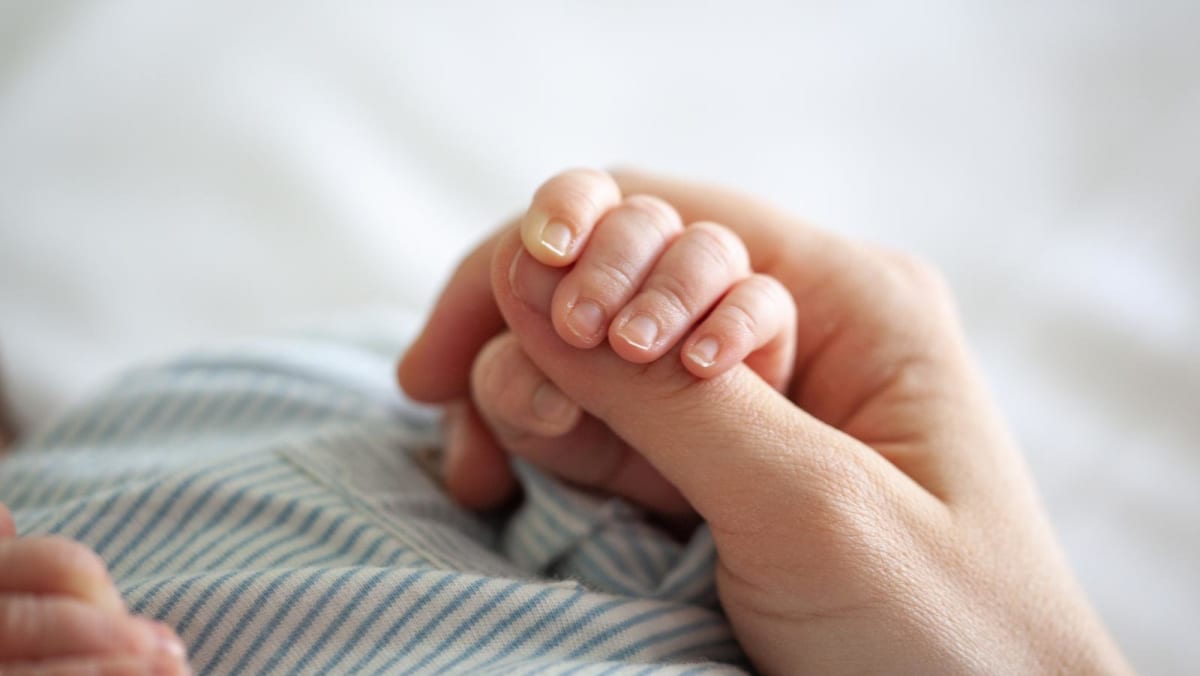
UNCLEAR IF AFFECTED
Some clients also pointed out that the email did not specifically state whether those who received it had been affected.
One of the recipients, Ms Cher, told CNA that the email she received only referred to the cord blood of her younger child and not the elder.
Before her first child was born in 2018, Ms Cher and her husband had spent three to four months speaking to all the cord blood banks here, researching online and attending baby fairs before deciding on Cordlife.
“It was a decision we mulled over for a long time before deciding on which company to store with, so we were crushed to hear the news,” the 33-year-old account director told CNA.
She took to her blog in 2018 to detail why she had settled on Cordlife, including that it had the longest track record with the most number of successful transplants, as well as its accreditation with MOH and Association for the Advancement of Blood and Biotherapies.
“It’s good that they sent out the email, although I wish we received it before the news broke. In our case, we saw the news first, and then the email came in hours later,” Ms Cher said.
“At this stage, there’s still a lot of questions unanswered. We would like to see Cordlife investigate properly and give a full account of what happened, how the lapse occurred, why, rectification measures, and work with all affected clients on a viable solution for everyone.”
Responding to queries from CNA, the spokesperson for Cordlife Singapore said the company is currently contacting all clients, including the 1,841 who have cord blood units stored in the affected tank where testing is complete.
Cordlife clarified that the 1,841 excludes clients who have terminated their accounts with the company.
The spokesperson also reiterated that the tank contains 2.66 per cent of all cord blood units stored by Cordlife Singapore as per current records.
“This is an evolving situation, and our team is working hard to communicate with all of our affected and unaffected clients directly.
“We seek our clients’ understanding as we continue our outreach and ongoing testing.”
The company added that it will be reaching out to clients who have either not registered an email address or have an outdated email via post.
“For the other six tanks where irregular temperature readings were detected, investigations with the Ministry of Health are presently ongoing. We will provide those clients with updates as soon as possible,” said Cordlife’s spokesperson.
For clients who are considering transferring their cord blood from Cordlife to another facility, the spokesperson said: “Moving cord blood units from one location to another is not recommended because this could potentially affect the stem cells.”
If clients continue to store with Cordlife, the company said it will be able to “continue to honour the commitments” in the service agreement signed with clients.
“However, if they insist on transferring, we will assist them in completing the transfer,” added the spokesperson.
PARENTS PAID HIGH PRICES FOR STORAGE
Other parents pointed to the high cost of storing their children’s cord blood and demanded explanations.
Mr Chia Hong Loon, a father of two, had placed his firstborn’s cord blood, cord lining, and cord tissue with Cordlife in August 2020.
For these services, he estimated having paid close to S$10,000 (US$7,474) to Cordlife thus far.
Sharing the price plan he subscribed to, the 31-year-old financial consultant pointed out that his package for cord blood and cord tissue banking was a 21-year plan with an upfront payment of S$6,800.
“I will need an explanation and see what they are going to do about it. (I am) definitely upset because it’s something that can be used if (there is) an emergency which we won’t want to see happen.
“But now it might become something useless, (in addition) we just paid the renewal fee,” said Mr Chia, who added that he had not stored the cord blood of his second child.
Likewise, Ms Aiza Bumacod, a mother of three, also forked about S$10,000 to store her second child’s cord blood with Cordlife in 2019.
“I feel deeply saddened and disappointed, thinking that I had invested a large sum of money and placed my trust in one of the best cord blood banks in Singapore,” said the 36-year-old nurse, adding that she chose the company for its high standards and integrity in promoting the safety and security of cord blood storage.
“If they believe that compensating us will resolve this issue and address their irresponsibilities, I hope they understand that the damage caused to thousands of parents here in Singapore has brought us immense sorrow, and no amount of money can replace it.”
Asked if it intends to refund or compensate clients, Cordlife repeated its previous reply that it will waive off future storage fees for clients until their child turned 21 while continuing to store the cord blood. This is in view of developments in the field of cell and gene therapy.

